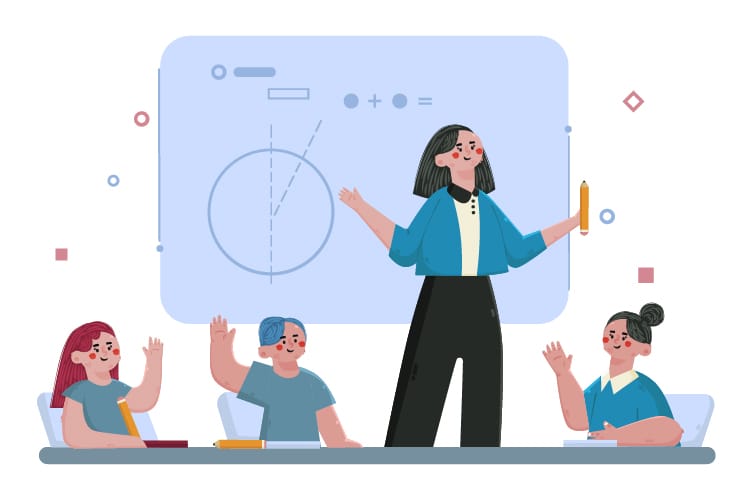As the educational landscape continues to evolve, the need for teachers to adapt to emerging pedagogical approaches has never been more critical. The integration of technology, personalized learning, and innovative teaching strategies are reshaping classrooms around the globe. To ensure that educators are equipped to navigate these changes effectively, upskilling initiatives are essential. This article explores the current trends in teacher professional development, the challenges faced, and the strategies that can be employed to enhance teaching practices in the 21st century.

The Need for Upskilling
The rapid advancement of technology and the shift towards student-centered learning have necessitated a reevaluation of traditional teaching methods. Educators are increasingly required to embrace new pedagogical approaches, such as blended learning, project-based learning, and social-emotional learning. However, many teachers feel unprepared to implement these strategies effectively, highlighting the urgent need for targeted professional development.
Current Trends in Pedagogical Approaches
Blended Learning
Blended learning combines traditional face-to-face instruction with online learning components, allowing for greater flexibility and personalization. Educators must be trained to design and implement blended learning environments that cater to diverse student needs.
Project-Based Learning (PBL)
PBL encourages students to engage in real-world projects that foster critical thinking and problem-solving skills. Teachers need support in developing project-based curricula and assessment methods that align with learning objectives.
Social-Emotional Learning (SEL)
Recognizing the importance of emotional intelligence in education, SEL programs aim to develop students’ self-awareness, empathy, and resilience. Teachers require training to integrate SEL into their teaching practices effectively.
Personalized Learning
This approach tailors instruction to meet individual student needs, allowing for customized learning paths. Educators must be equipped with the skills to leverage data analytics and technology to create personalized learning experiences.
STEAM Education
Integrating the arts into STEM education fosters creativity and innovation. Teachers need guidance on how to incorporate interdisciplinary approaches that engage students in meaningful ways.
Challenges in Upskilling Educators
Despite the clear need for upskilling, several challenges hinder the effective implementation of professional development programs:
- Time Constraints: Many educators struggle to find time for professional development amidst their teaching responsibilities. This challenge underscores the importance of flexible, accessible training options.
- Resource Limitations: Schools often face budget constraints that limit their ability to provide comprehensive training programs. Prioritizing funding for teacher development is essential to address this issue.
- Resistance to Change: Some educators may be hesitant to adopt new pedagogical approaches due to comfort with traditional methods. Cultivating a culture of innovation and support within schools can help mitigate this resistance.
Strategies for Effective Upskilling
To address these challenges and enhance the effectiveness of teacher professional development, several strategies can be employed:
Flexible Learning Opportunities
Offering online courses, workshops, and webinars allows educators to engage in professional development at their own pace and convenience. This flexibility can help accommodate busy schedules.
Collaborative Learning Communities
Establishing professional learning communities within schools fosters collaboration among educators. These communities can serve as platforms for sharing best practices, resources, and support.
Mentorship Programs
Pairing experienced teachers with those seeking to develop new skills can facilitate knowledge transfer and provide valuable guidance. Mentorship programs can create a supportive environment for growth and development.
Data-Driven Decision Making
Utilizing data analytics to assess teacher performance and identify areas for improvement can inform targeted professional development initiatives. Schools can tailor training programs to address specific needs.
Integration of Technology
Providing educators with training on the latest educational technologies can enhance their ability to implement innovative teaching strategies. Familiarity with digital tools is essential for creating engaging learning environments.
Conclusion
Upskilling teachers in emerging pedagogical approaches is crucial for preparing students for the challenges of the 21st century. As educational practices continue to evolve, educators must be equipped with the knowledge and skills necessary to implement innovative teaching strategies effectively. By prioritizing professional development and addressing the challenges faced by educators, we can create a more dynamic and responsive education system that meets the diverse needs of learners. Investing in teacher training is not just an investment in educators; it is an investment in the future of education itself.
- Blended Learning: Combines traditional and online instruction for flexibility and personalization.
- Project-Based Learning (PBL): Engages students in real-world projects to foster critical thinking.
- Social-Emotional Learning (SEL): Develops emotional intelligence through self-awareness, empathy, and resilience.
- Personalized Learning: Tailors instruction to individual student needs using data analytics and technology.
- STEAM Education: Integrates arts into STEM to foster creativity and innovation.
- Challenges: Include time constraints, resource limitations, and resistance to change.
- Strategies: Flexible learning opportunities, collaborative communities, mentorship programs, data-driven decision making, and technology integration.
How can professional development initiatives in your school or district better support teachers in adopting emerging pedagogical approaches?

